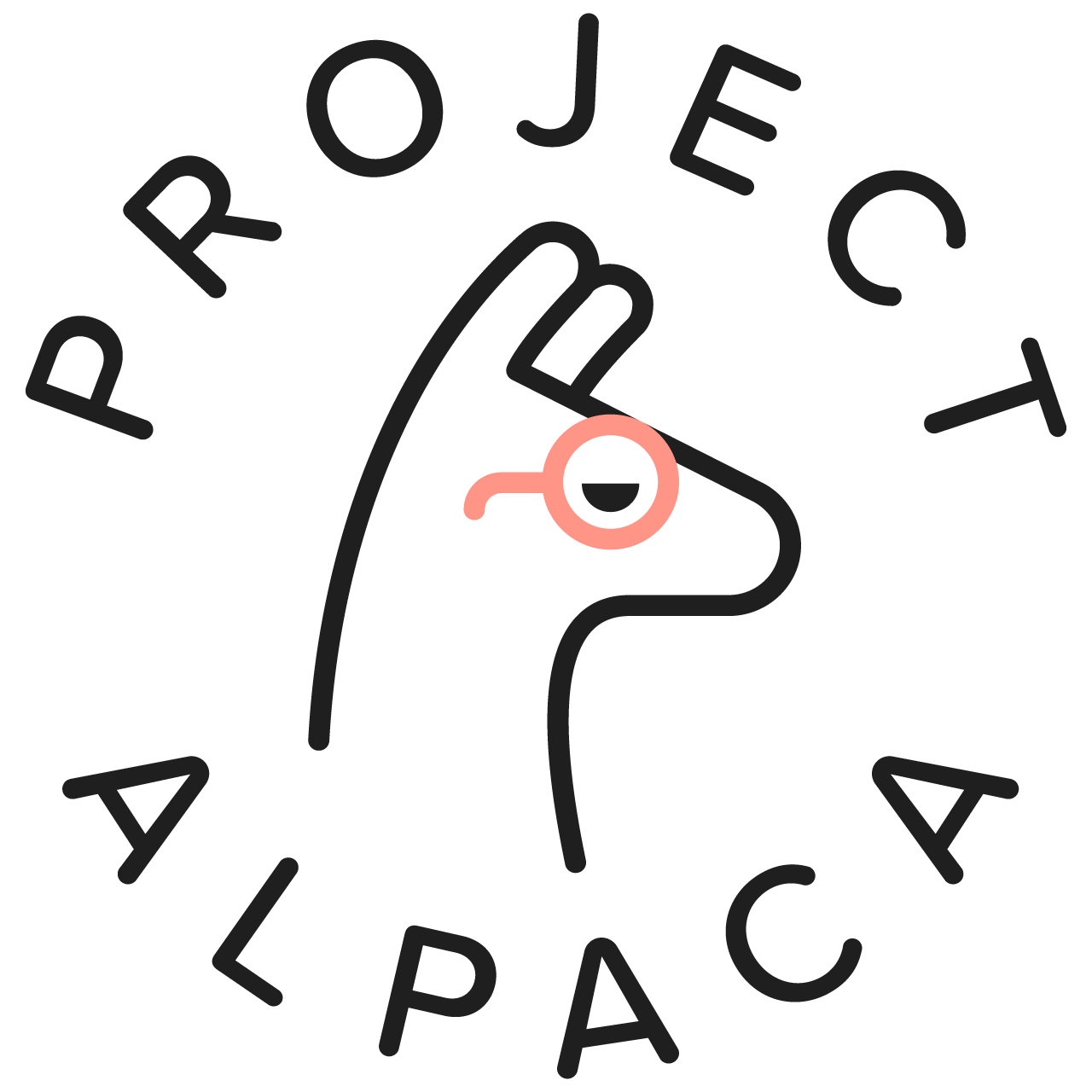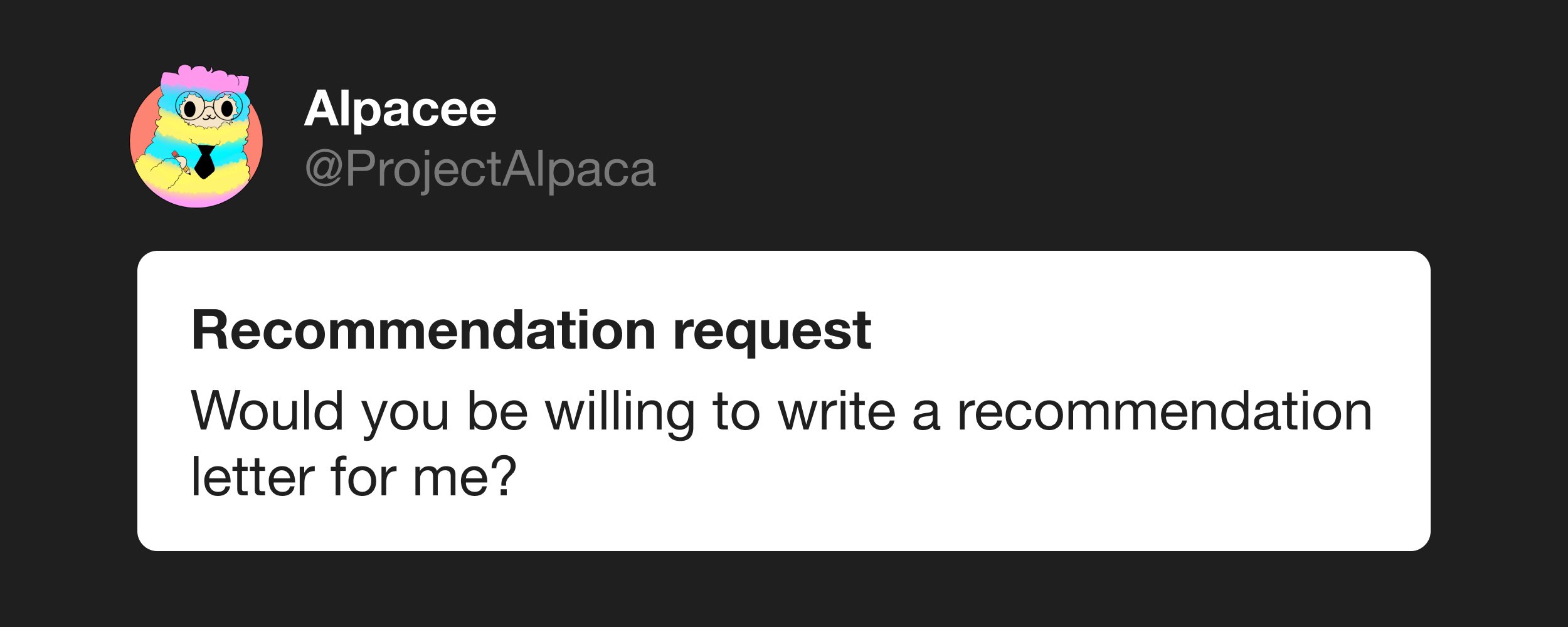How to ask for a recommendation
Recently one of our Alpacees asked for a recommendation to a fellowship she’s planning to apply to, and followed up with the request in an email. It was so well written that we were inspired to share why her email made such a great impression — tips that other students can use to ask for recommendations for internships, fellowships, or graduate school applications.
Her email impressed on us that she had thought about what information we would need to write a good recommendation, and made sure we got that information. Our first reaction was, “Wow she’s really prepared and organized. She’s ready for this.” Right off the bat, she demonstrated several qualities that hiring managers, recruiters, and selection committees look for in candidates…and recommenders can elaborate on in their letters.
Here’s what our Alpacee did well in her request for a recommendation, as well as a couple other tips that could help you:
1) Give the recommender ample time (more time than you think) to write the recommendation
Your professors, employers, or anyone else who you trust to say good things about you have full, busy lives. You are asking them to take time out of their life to help you, and craft something that’s thoughtful, genuine and speaks glowingly of your abilities. That takes time and effort if you want a great letter. It’s common to give someone 4 to 6 weeks advance notice.
If you give your potential recommender less than that amount of time to submit a recommendation, be prepared to give a good reason why. Even so, they may still tell you they can not help you with this request if they do not have time. Plus, if you do not supply a good reason for why you’re asking with short notice (especially if the recommendation’s due in less than 2 weeks), this may cast doubt in their mind about how prepared you are as a candidate and affect their willingness to write recommendations for you.
2) Provide context for the recommendation
What is it you’re applying for? Tell your recommender a little bit about the program or the opportunity, and why it’s relevant for you. Attach a link to a website where they can read more information.
Why are you applying? They need to be able to logically connect your interests and motivation to what the program is offering. This will help them write a stronger letter of recommendation.
What is the program looking for in a candidate? In this case, our Alpacee actually attached a screenshot of the selection criteria for the program.
3) Provide information that helps your recommender
Why do you think you’ll be a good fit? Give them all the ammunition they need to write you a great letter. Here’s what you can offer and attach with your request to make their task easier and your letter stronger:
Your resume
Examples of your work (ie. portfolio, website, PDF)
A copy of your own application for the program
What you think would be important for your recommender to highlight in their own letter (Ie. do you have any experiences that are particularly relevant? You can ask them to elaborate on these in their letter. )
In general, offer to provide more information to make the recommendation easier and less time consuming for them to write. They will absolutely appreciate the time you put into the request to help them do a better job.
4) Say thank you
This one seems fairly obvious. Thank your recommender for taking the time to read and consider your request. Be confident, while allowing it to be possible that they say no if they don’t think they can write a good recommendation in support of you.
5) Remember to say thank you again after they send in the letter
Gratitude and appreciation always comes back to you. If your recommender agreed to help and sent off a letter of support for you, please remember to send a sincere note of thanks at that point!
If you do all of the above, you’ll have created a positive experience for your recommender. They’ll also now be much more willing to write other letters of recommendations for you in the future!

